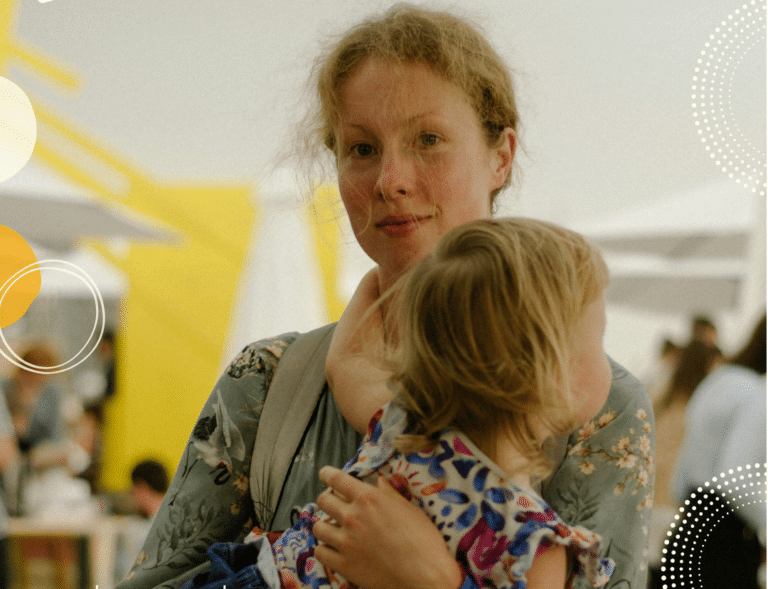Separation anxiety
It is very normal for young children to experience separation anxiety when being left by a 
Typical behaviour includes crying and clinging and signs of distress when a parent moves out of sight or just too far away. Sometimes children cling to just one parent – which can be exhausting and emotionally draining for that parent, and feel like a rejection for the excluded parent.
Here are a few tips that might help if your little one is experiencing separation anxiety.
Tips for handling separation anxiety
- Try to go at your little one’s pace. Pushing them away is likely to trigger separation anxiety so signal your movements clearly and give them choices. Eg: “I’m going into the kitchen to get a drink for you. Do you want to come with me or shall I get the drink and bring it to you?“
- If your little one is especially clingy and won’t leave you alone for a moment, it’s ok to take a break. Those constant demands can be hard to handle.
- Encourage social interaction from an early age to help your little one get used to being in different surroundings with different people. This can also help keep parents sane and connected.
- Familiarise your little one to new surroundings before leaving him/her. Maybe stay together for a first visit.
- Don’t be tempted to sneak off to avoid the wails of distress. Sneaking off is likely to put your little one on constant alert for fear that you will disappear again.
- Set the scene. For example, in the morning, explain to your child how the day is going to go. “We’re going to get up and get dressed and have toast for breakfast. Then we are going in the car to the creche. I’m going to give you a big kiss and say good-bye. You are going to stay and have lots of fun playing and then after lunch, I will pick you up and we will drive home in the car and play in the garden.” Talk them through the whole process, including re-unification.
- When you are leaving, stay calm and cheerful. Say goodbye and leave decisively. Usually, the moment of separation is the hardest so keep that bit short.
- If your child is struggling regularly with being left, you could ask them what might help. Say something like, “I know you find it hard when I leave you at the creche. It’s normal to feel sad when we say good-bye to people we love. What might make that moment easier for you?” There might be a special toy or a specific gesture that will ease the separation for them.
- Don’t let separation anxiety feed working mum’s guilt. There is no evidence of a link between separation anxiety and having a working mother. Children of stay at home mums are just as likely to experience it.
Separation anxiety tends to fade naturally by about 4 years old – but many children will still be wary about separation when they start school. You can help to prepare children for changes that involve separation (such as going back to work or starting school) by reading books together – see these Books for helping children cope with change and Starting school books for ideas – or these Books to help children with anxiety.
If separation anxiety persists, you might need to teach your child some coping strategies (check out this simple Finger Breathing idea as a starting point). Or this could be a sign of an underlying developmental condition. Rarely, some older children experience separation anxiety disorder – which is often accompanied by irrational fear that something bad will happen to parents when they are out of sight. If you are worried, seek help.
Does your child suffer from ANXIETY? We offer specialised support for parents to help you learn how to support an anxious child/teenager and build their confidence. Details here.







Great post and brilliant tips Anita!
Thanks Renee! My youngest could never bear to be more than 2 metres away from me so I know exactly how exhausting it can be…..
Hi! A great article, thank you. My 2.5 year old is experiencing it now. Nothing has changed in his routine. It’s particularly tough for my husband at the moment. What’s really working for us is to talk through the day and who is doing what and when, then he knows what to expect. He also has a family album at his nursery which he loves and they add bits to. It’s a phase but a very tough one!
Great tips, thanks for sharing. And hang in there!